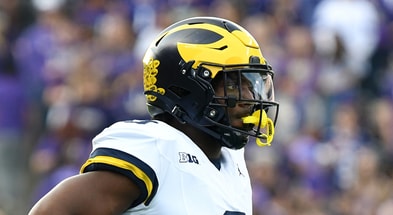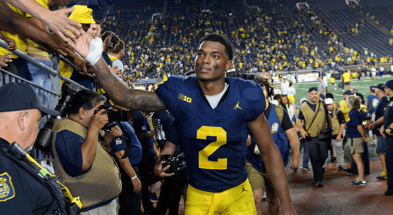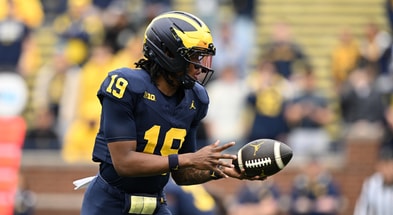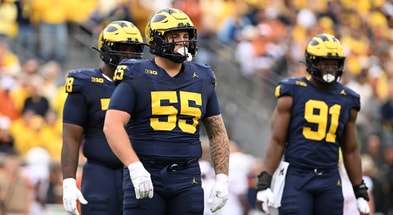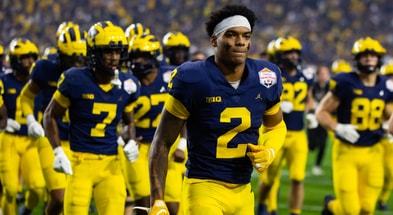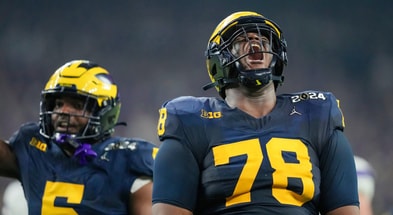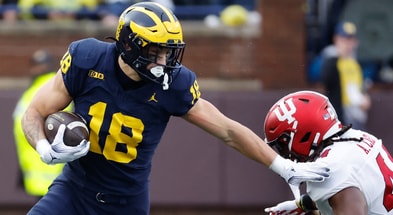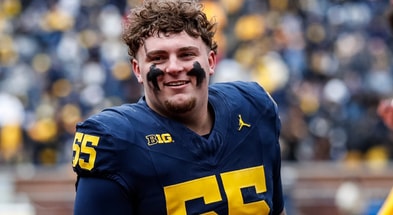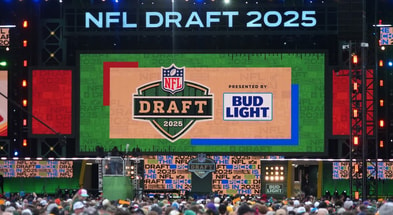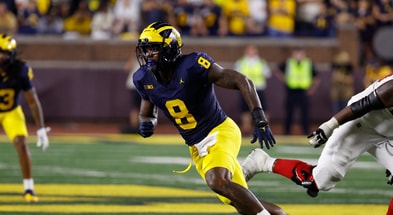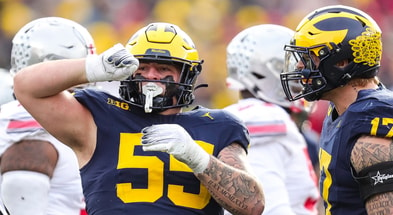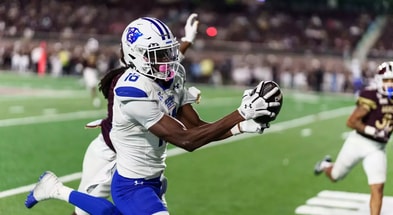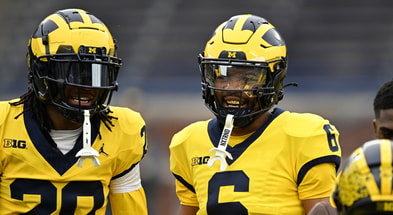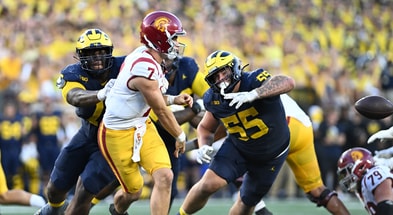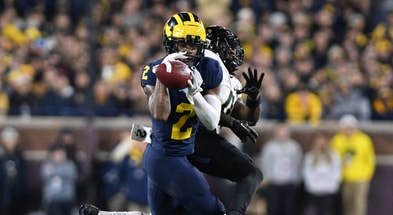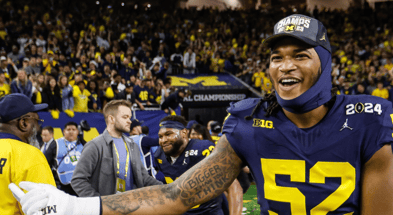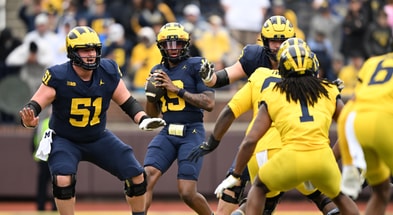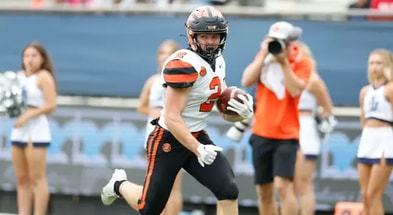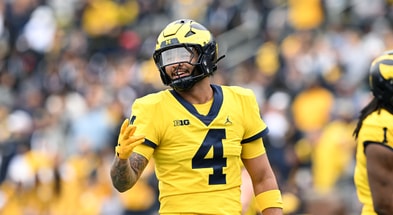Jim Harbaugh: ‘[We need] a system of revenue sharing with the student athlete – now’
![Jim Harbaugh: ‘[We need] a system of revenue sharing with the student athlete – now’](https://on3static.com/cdn-cgi/image/height=417,width=795,quality=90,fit=cover,gravity=0.5x0.5/uploads/dev/assets/cms/2023/08/13210037/college-football-insider-weighs-in-on-ncaa-aggressive-response-jim-harbaugh-situation-suspension-rec.png)
Michigan coach Jim Harbaugh first broached the idea of revenue sharing with college football players up a few years ago, and he brought it up again last year at Big Ten Media Day. Some believe it didn’t go over well with those most benefiting in the profits, and that seems to be the case. But Harbaugh doubled down on his stance in the first several minutes of his Monday press conference, the first game week presser of the year.
RELATED:INSIDE THE FORT, 8-25: Michigan football camp rumblings, Bryce Underwood, NIL, more
RELATED: The 3-2-1: More Michigan football fall rumblings, and what’s next from the NCAA?
Harbaugh was asked about the issues in an earlier presser, but he said then he didn’t have time to think about it. He prepared a written statement this time around, and he didn’t hold back. The players need to be paid, he said — more than just NIL (Name, Image, and Likeness) benefits — and he implored other coaches to help be that voice for the players. He also made it known they were his opinions and nobody else’s.
“I want to take this opportunity to speak about the big picture … bigger than one game, any game this season,” Harbaugh began. “… The big one — the one I first started mentioning in 2020, then again in 2022 at Big Ten Media Days, and I continue to advocate for that today — a system of revenue sharing with the student-athlete. I’m aware and understand when someone speaks out in defense of those without a voice, attempts are made to diminish the individual’s character and credibility. As a former player and current coach mentoring many of these student-athletes, what I wanted to do is be a voice for the student-athletes. I want them to be treated with the respect and dignity they deserve.
“What I don’t understand is how the NCAA, television networks, conferences, universities, and coaches can continue to pull in millions and in some cases billions of dollars in revenue off the efforts of college student athletes across the country without providing enough opportunity to share in the ever-increasing revenues. When student-athletes call it a game, corporate types call it a business. When the student-athlete calls it a business, corporate types call it a game. I am aware that Notre Dame athletic director Jack Swarbrick said, ‘I think the decision making lost its way in terms of the focus on the student-athlete and what’s primarily best for them, but we are where we are. We have to try to make it work.’ And … we do. We have to try to make it work.”
And it needs to happen now, Harbaugh said, adding “the current status quo is unacceptable and won’t survive.” If they capitalize on the talent, he said, they should pay the talent for their contributions to the bottom line. The game of football has evolved since inception and dramatically started to change in the 1970s, Harbaugh said, where at that time one game a week was televised.
“Today, every game during the 12-week regular season is broadcast,” Harbaugh said. “The major conferences, every game is nationally televised to millions of households and sold out stadiums every Saturday. Why wouldn’t we let the student-athletes share in the success of their sport?
“We all should be about diversity, equity, and inclusion. I’m calling for a system that is fair, equitable, and benefits all involved. Don’t exclude the student athletes from the profits. In my opinion, you can’t say you’re about diversity, equity, and inclusion if you aren’t willing to include the student athletes in revenue sharing.”
Top 10
- 1Breaking
Shedeur Sanders not drafted
Slide continues
- 2
10 Best Available Players
After Rounds 1-3 of NFL Draft
- 3
Picks by Conference
SEC, Big Ten continue to dominate Draft
- 4Hot
Jalen Milroe
Drafted before Shedeur Sanders
- 5Trending
Shedeur Sanders
Reportedly pranked by fake NFL team
Get the On3 Top 10 to your inbox every morning
By clicking "Subscribe to Newsletter", I agree to On3's Privacy Notice, Terms, and use of my personal information described therein.
It’s a shortsighted view of history, Harbaugh continued, to presume a system of revenue sharing would topple the current structure, listing Amazon, UPS, and U.S. Steel “to name a few” that have benefited. He also brought up Nike and how Delores Jordan, Michael Jordan’s mother, wouldn’t let her son sign an endorsement deal with Nike without Jordan sharing in the revenue.
“I think we would all agree it worked out pretty well for Nike,” Harbaugh said. “As an NFL player, I was part of the change in NFL free agency rules and profit sharing with the talent. I lived it. I benefited from it. So did thousands and thousands of players that followed. I think we can all agree that the organizations and the NFL as a league and corporate entity have benefited greatly, as well.
“I’m not saying I have all the answers — what I’m hoping to accomplish today is sparking constructive conversation and timely action with and between the NCAA, conferences, coaches, universities … certainly a group representing the student athletes, as well as experts and legal minds that specialize in revenue sharing.”
He’s looking for a system “that’s fair and treats student-athletes with the respect and dignity that they deserve,” Harbaugh said, and hopeful it will be implemented soon.
“I don’t know exactly how that sausage is going to get made, but the current system and the status quo — we can’t just keep kicking this can down the road,” Harbaugh said. “It’s got to change, and it’s got to happen timely. Now.”

